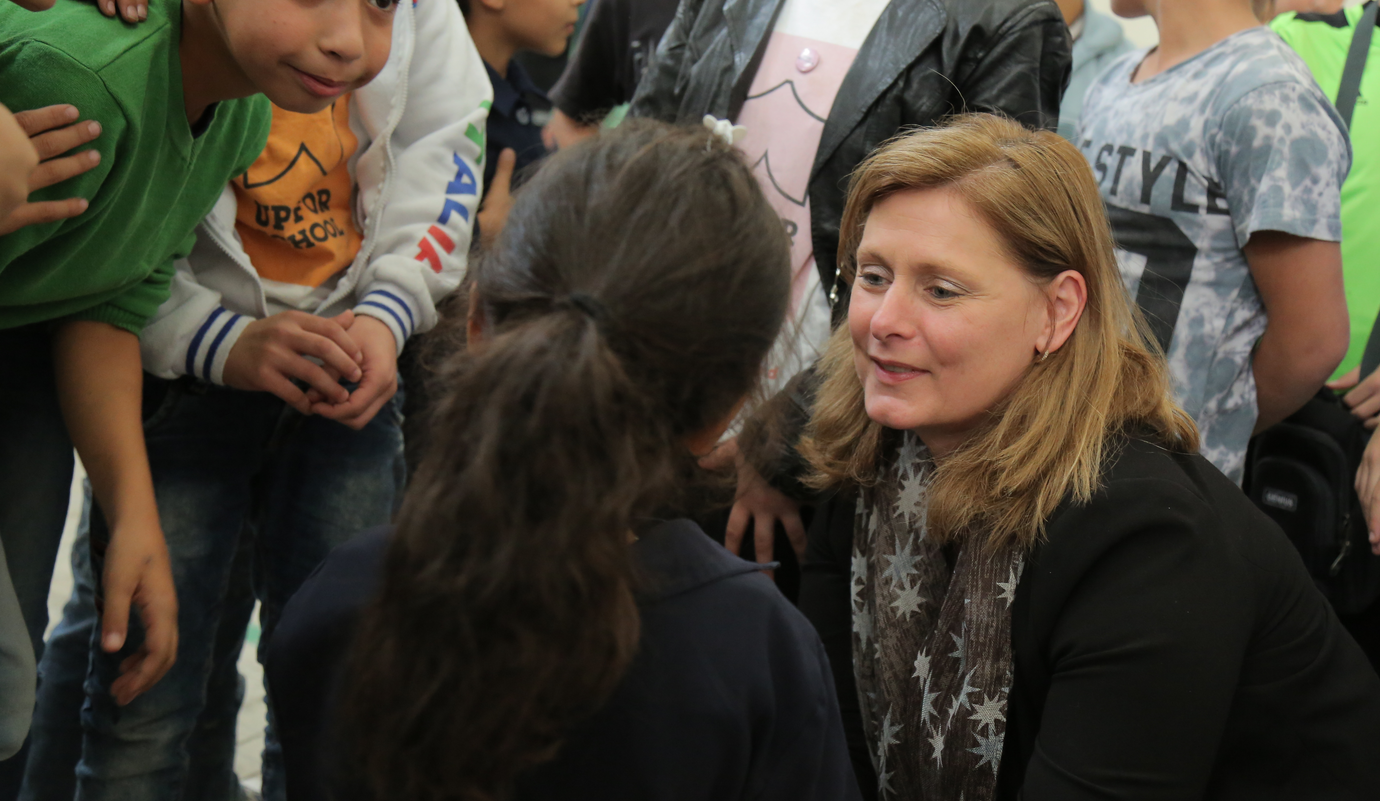
Parents forced to use goats and labour to pay school fees in Zimbabwe
Barriers to education, Education funding, Right to education
A government programme backed by aid agencies and the UN is supposed to take care of school fees for underprivileged children - but funding has fallen short.
A goat bleats, digging its hooves into the ground to stop itself being dragged on a rope through the school gate by a determined parent, as pupils look on excitedly.
At Chomutsvairo Primary School in Mwenezi district, cash-strapped parents and guardians wait to hand over their goats to the school authorities in lieu of tuition fees.
The school in the southern province of Masvingo was set up on a cattle farm repossessed from a white farmer during Zimbabwe’s commercial farm seizures which began in 2000.
“I have no money, and this goat I’m holding is the one I’m using to settle school fees for my child doing Grade Five,” said Gift Gondombwe, explaining that the government is now letting parents pay for education with livestock.
Some 80 metres away, about 10 other parents and guardians busy themselves pushing wheelbarrows full of bricks, sand and other building materials, offloading them in the school yard.
“We thank the government,” said one of the labourers, Juliet Sibanda. “Many of us had no money for school fees, neither do we have the livestock to use in paying for our children’s tuition but we have our labour to render to the school as payment.”
Paying with goats is akin to taking our society backwards to the Stone Age, where barter trade was used. Robson Chere, secretary-general of the Amalgamated Rural Teachers' Union of Zimbabwe
With Zimbabwe beset by a deepening liquidity crunch, the Ministry of Primary and Secondary Education has urged schools to accept payment in kind.
As the country’s manufacturing sector has declined over the years, cash circulation has plummeted.
Early last year, the central bank steadily reduced cash withdrawal limits, pegging them at $500 a day in March. This year, they were cut further to $50.
But banks are still unable to dispense enough cash to meet demand, with depositors queuing outside branches in a daily battle to get their money.
As the southern African nation’s economic woes worsen, government figures show that nearly three-quarters of its 14 million people live in poverty.
Three years ago, a government programme, backed by aid agencies and the United Nations, started taking care of school fees for 750,000 under-privileged children.
But donor support is insufficient as more and more families need help, prompting parents to look for other ways to cover school fees.
Some 13,000 pupils countrywide dropped out of school last year due to unpaid fees, according to ministry data.
In April this year, Lazarus Dokora, Zimbabwe’s education minister, told state-controlled weekly newspaper the Sunday Mail that schools needed to be “flexible” and allow local people to work for them or trade animals instead of paying fees in cash.
But some parents, like Jimson Chirinda from Mwenezi district’s Mindamirefu village, are sceptical.
“If parents keep bringing goats to schools as payment for fees, will the goats turn into money? Who will buy the goats? Definitely no one, because there is no money in villages here,” he said.
Education in Zimbabwe
Zimbabwe introduced free education in the 1980s – but lack of funding meant fees began to creep in to cover building, tuition, transport, uniforms etc.
15% of children are not in school due to the high cost of fees, according to the Zimbabwe Vulnerability Committee.
It said that in the first term this year 63% of students were turned away from rural schools for non-payment of fees.
Sylvia Utete-Masango, permanent secretary at the education ministry, told the Thomson Reuters Foundation head teachers should value the goats brought in by parents and sell them to “well-to-do” community members, including teachers, using the proceeds to develop their schools.
But some civil society groups have criticised the in-kind payment system as “archaic”.
“Paying with goats is akin to taking our society backwards to the Stone Age, where barter trade was used,” said Robson Chere, secretary-general of the Amalgamated Rural Teachers’ Union of Zimbabwe.
The practice “decimates local people’s social and economic traditional fabric”, he added.
The trade union puts the number of parents and guardians with children in school at 4.5 million countrywide, and estimates 60% have resorted to using livestock and their own labour as a way of paying school fees.
But for some parents like 46-year-old Dambudzo Makiwa in Mwenezi, whose three children dropped out of school last year, using livestock to cover school fees is a non-starter.
“Life has become so difficult for me – I no longer have goats… because I sold them all to meet other needs at home before they became acceptable to settle school fees,” he said. “I can tell you very few families still have livestock in the village here.”
Makiwa said he had limited skills and would only be able to get labouring work as a building assistant. “There is not much money in that job, which means I will still fail to raise the school fees,” he added.
More news

